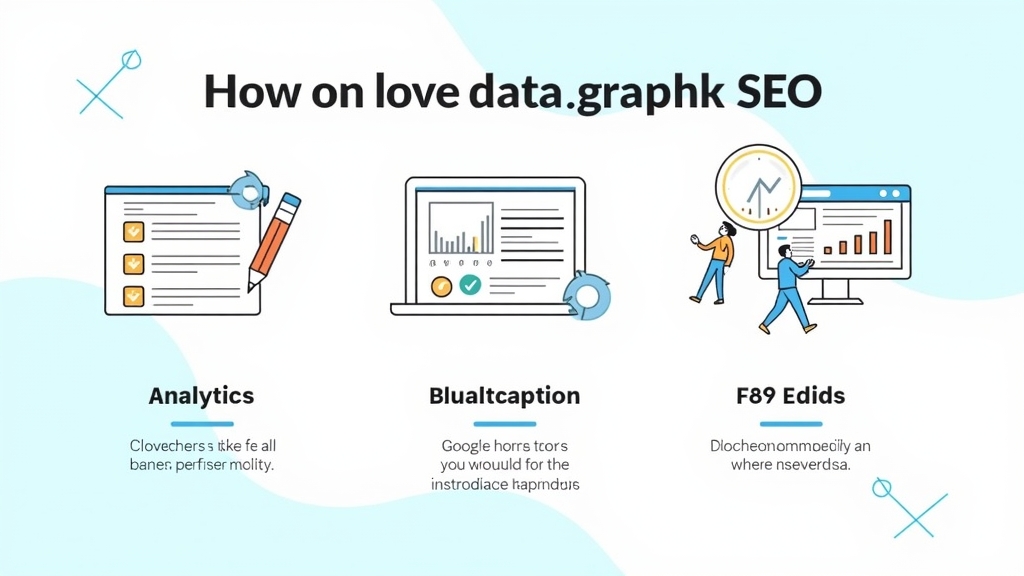Marketing – Data-Driven SEO Strategies for Success
Introduction
Understanding the Importance of Data in SEO
In today’s digital landscape, data is your best friend when it comes to Search Engine Optimization (SEO). A data-driven approach allows you to make informed decisions that can significantly enhance your website’s visibility and performance. By leveraging analytics and insights, you can understand what works and what doesn’t, ensuring that your marketing efforts yield the best results. This article will explore effective data-driven SEO strategies that can lead to success in your online marketing endeavors.
What are Data-Driven SEO Strategies?
Definition and Key Components
Data-driven SEO strategies involve using quantitative information to guide your optimization efforts. This means analyzing various metrics—like traffic sources, user engagement, and keyword performance—to shape how you approach content creation and site structure. Key components include keyword research, content optimization, technical SEO adjustments, and ongoing performance measurement.
Benefits of Implementing Data-Driven Approaches
Implementing data-driven approaches offers numerous benefits. First, it enhances targeting accuracy by identifying which keywords bring the most traffic. Second, it helps improve user experience by understanding visitor behavior on your site. Lastly, a data-centric strategy allows for continuous improvement through regular analysis of performance metrics.
The Role of Analytics in SEO
Utilizing Google Analytics for Insights
Google Analytics is a powerful tool that provides valuable insights into how users interact with your website. You can track metrics such as page views, bounce rates, and average session duration. By examining these statistics regularly, you can identify trends and areas needing improvement.
Interpreting User Behavior and Engagement Metrics
Understanding user behavior is crucial for optimizing your site effectively. Engagement metrics like time spent on pages or click-through rates reveal how well visitors connect with your content. High engagement often indicates relevant content while low engagement may signal the need for revisions or improvements.
Keyword Research: Leveraging Data for Better Targeting
Tools and Techniques for Effective Keyword Analysis
Effective keyword analysis involves using tools like Google Keyword Planner or SEMrush to discover high-ranking keywords related to your niche. These tools provide search volume data and competition levels so you can choose keywords that maximize visibility without being overly competitive.
Analyzing Competitor Keywords to Gain an Edge
Studying competitor keywords gives you insight into their strategies while revealing gaps in their approach that you can exploit. Tools like Ahrefs allow you to see which keywords competitors rank for; this knowledge helps refine your own keyword strategy.
Content Optimization Through Data Insights
Using Data to Inform Content Creation and Strategy
Data should guide every aspect of content creation—from topic selection to format choice. Analyzing popular topics within your industry helps ensure you’re creating content that resonates with readers while also aligning with search intent.
Importance of A/B Testing in Content Performance
A/B testing is essential in determining what elements work best on your site—be it headlines, images, or calls-to-action (CTAs). By comparing two versions of a webpage or piece of content against each other based on user interactions, you gain insights into what drives conversions more effectively.
Technical SEO and Data Integration
Monitoring Site Performance with Data Tools
Monitoring site performance is vital for maintaining good rankings on search engines. Tools like Google Search Console help track issues such as crawl errors or mobile usability problems so they can be addressed promptly before they impact user experience negatively.
Fixing Technical Issues Using Analytical Insights
Using analytical insights enables quick identification of technical issues affecting site speed or accessibility—both critical factors influencing search engine rankings. Regular audits based on collected data ensure optimal functionality across all devices.
Measuring Success: KPIs for Data-Driven SEO
Identifying Key Performance Indicators
Key Performance Indicators (KPIs) are essential metrics used to measure the effectiveness of your SEO strategies over time. Common KPIs include organic traffic growth rate, conversion rates from organic searches, bounce rates per page visited—and tracking these indicators will help gauge overall success accurately.
Adjusting Strategies Based on Performance Metrics
Once you’ve identified KPIs relevant to your goals—it’s important not just to monitor them but also adjust strategies accordingly! If certain tactics aren’t yielding desired results after consistent evaluation—you may need new approaches tailored specifically toward improving those weak points!
Future Trends in Data-Driven SEO
Emerging Technologies Influencing SEO Practices
Emerging technologies such as artificial intelligence (AI) are shaping future trends within the realm of data-driven SEO practices today! AI-powered tools enable more personalized experiences while enhancing predictive capabilities around consumer behavior patterns—which could revolutionize traditional methods we’ve relied upon thus far!
Predictions for the Evolution of SEO Strategies
As technology continues evolving rapidly—it’s likely we’ll see an increased focus placed upon voice search optimization alongside enhanced mobile-friendliness due largely because consumers increasingly prefer convenience when searching online! Staying ahead requires adapting quickly based upon changing trends observed through ongoing analyses conducted regularly throughout campaigns run successfully over time!
Conclusion
Summarizing the Impact of a Data-Driven Approach on Marketing Success
In conclusion, adopting a data-driven approach in marketing significantly boosts success rates by providing actionable insights into customer preferences and behaviors. By utilizing analytics effectively—from keyword research through measuring key performance indicators—you position yourself strategically within competitive landscapes while ensuring continual growth opportunities arise consistently moving forward!
📢 Explore More: Continue Your Journey!
If this article helped you understand how data influences successful marketing strategies check out “The Ultimate Guide to Keyword Research!” It covers advanced techniques helping you master effective targeting even better.














![NEEWER 55W 18"/45cm Ring Light Kit [New Version], 5600K Dimmable ...](https://m.media-amazon.com/images/I/414QLqvZWLL._AC_.jpg)








